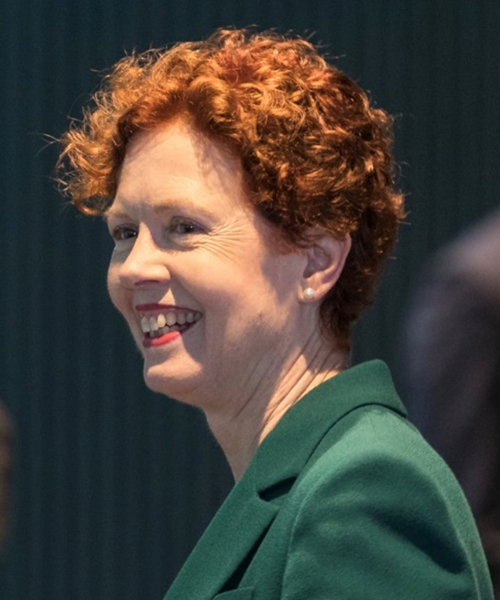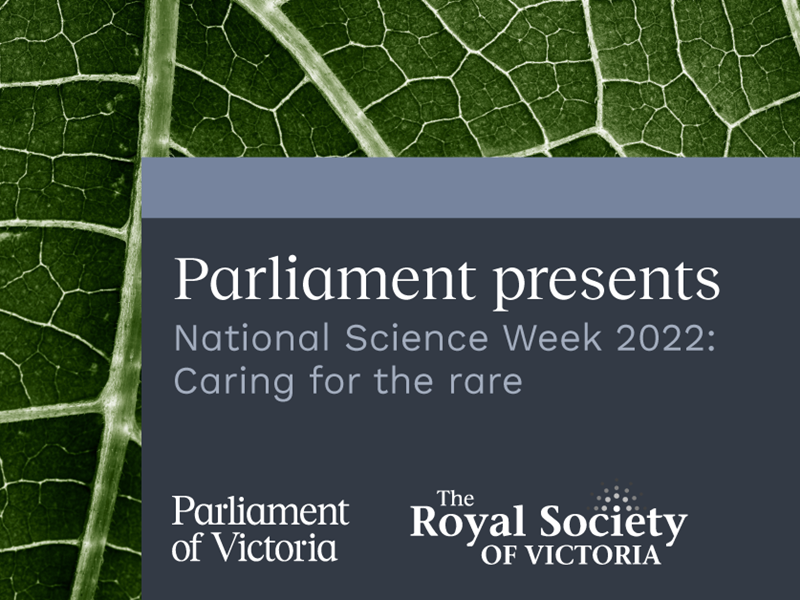- Home /
- Events /
- Live events
mRNA vaccines and therapeutics – for COVID-19 and beyond
This webinar, presented in partnership with Victorian Parliamentarians for STEM, will explore the role of mRNA technology in developing vaccines and other pharmaceutical products. Still at an early stage of development, this new technology is expected to bring health and economic benefits for Victorians.
The webinar will be presented by Professor Colin Pouton, Professor of Pharmaceutical Biology at the Monash Institute of Pharmaceutical Sciences, Monash University.
Joining Professor Pouton during the presentation will be Dr Amanda Caples, Victoria’s Lead Scientist and Chair of mRNA Victoria’s Scientific Advisory Group. She will provide an overview of Victoria’s longstanding commitment to grow Victoria’s biotechnology sector and how this strong foundation underpins our response to build sovereign capability in mRNA technology.
What is mRNA technology?
mRNA vaccination is a new technology that is working spectacularly well against COVID-19. There is general agreement that mRNA technology will be used to develop other vaccine products in the future. mRNA is manufactured using cell-free processes and can be purified and characterised like many familiar pharmaceutical products. This leads to fewer problems in manufacture and quality assurance than alternative approaches to delivering genetic medicines. There are no host mechanisms by which the RNA sequence can be integrated into the host genome, which is a significant safety advantage. mRNA technology offers a rapid method to produce vaccine candidates which can be adjusted quickly if viruses mutate. There is also the possibility that a cocktail of mRNAs could be delivered in the same formulation, against multiple strains, or potentially multiple infections. There are many other emerging uses for mRNA technology, including therapeutic vaccines for treatment of cancer, as well as personalised treatments for genetic diseases.
Delivering large molecules such as mRNA to the appropriate cells or tissues is a significant technical challenge. The lipid nanoparticle technology that is used to protect and deliver mRNA for COVID-19 vaccination is a critical component of the product. Nevertheless, the technology is still at an early stage in its development and there are opportunities to improve the design and manufacture of mRNA delivery systems. The commitment of the Victorian Government to support the local development of mRNA technology is an important step forward, and is expected to result in locally developed pharmaceutical products, delivering both health and economic benefits.
About the presenters
 Professor Colin W Pouton BPharm PhD
Professor Colin W Pouton BPharm PhD
Professor of Pharmaceutical Biology, Monash University
After a series of academic appointment at the University of Bath (UK), Colin Pouton moved to Monash University in 2001 to take up the Chair and Head of Department of Pharmaceutical Biology. Over the past five years he has been Head of Drug Delivery, Disposition and Dynamics (D4) at the Monash Institute of Pharmaceutical Sciences. Pouton has published more than 170 full manuscripts and his work has been cited more than 10000 times. Throughout his career, Pouton has supervised 68 PhD completions and over 20 postdoctoral research assistants. Currently, Pouton contributes to the research fields of nucleic acid delivery, stem cell technology, oral drug delivery and vaccine design. In relation to COVID-19 research, he has been using his experience in nucleic acid delivery to design and develop Australia’s first mRNA COVID-19 vaccine.
 Dr Amanda Caples BSc Hons PhD
Dr Amanda Caples BSc Hons PhD
Victoria’s Lead Scientist and Director of Breakthrough Victoria Pty Ltd.
Amanda Caples is Victoria's Lead Scientist, a role that connects Victoria’s science, technology and innovation capability with business needs and with government’s economic development activities.
Amanda is also a Director of Breakthrough Victoria Pty Ltd; Chair of mRNA Victoria's Scientific Advisory Group; Director of Agriculture Victoria Services Pty Ltd; a member of the VicTrack Strategic Innovation Advisory Group and the Rail Industry Development Advisory Committee. She chairs the Victorian Inspiring Australia Board to promote community awareness of science and the Victorian Quantum Technology Network to advance teaching and research in quantum technologies.
Amanda has led the development of industry and science and innovation policy in Victoria since joining the Victorian Public Service in 2002 as the inaugural Director of Biotechnology. During this time, she has delivered major policy reforms, a range of programs and global partnerships, and landmark initiatives including the Victorian Comprehensive Cancer Centre.
Amanda is experienced in clinical trials, regulatory affairs, business development and licensing through prior roles with international pharmaceutical and biotechnology companies.
Date and time
Wednesday, 3 November 2021
6:00 pm
Parliament presents
This event was streamed live as part of our 'Parliament presents' series, which features conversations with some our state's leading experts, working across all sectors of the Victorian community.
Visit our YouTube playlist for more in this series.
Parliament presents
Watch some of the previous conversations we have hosted as part of our 'Parliament presents' series of live events, featuring leading voices from across the Victorian community.





